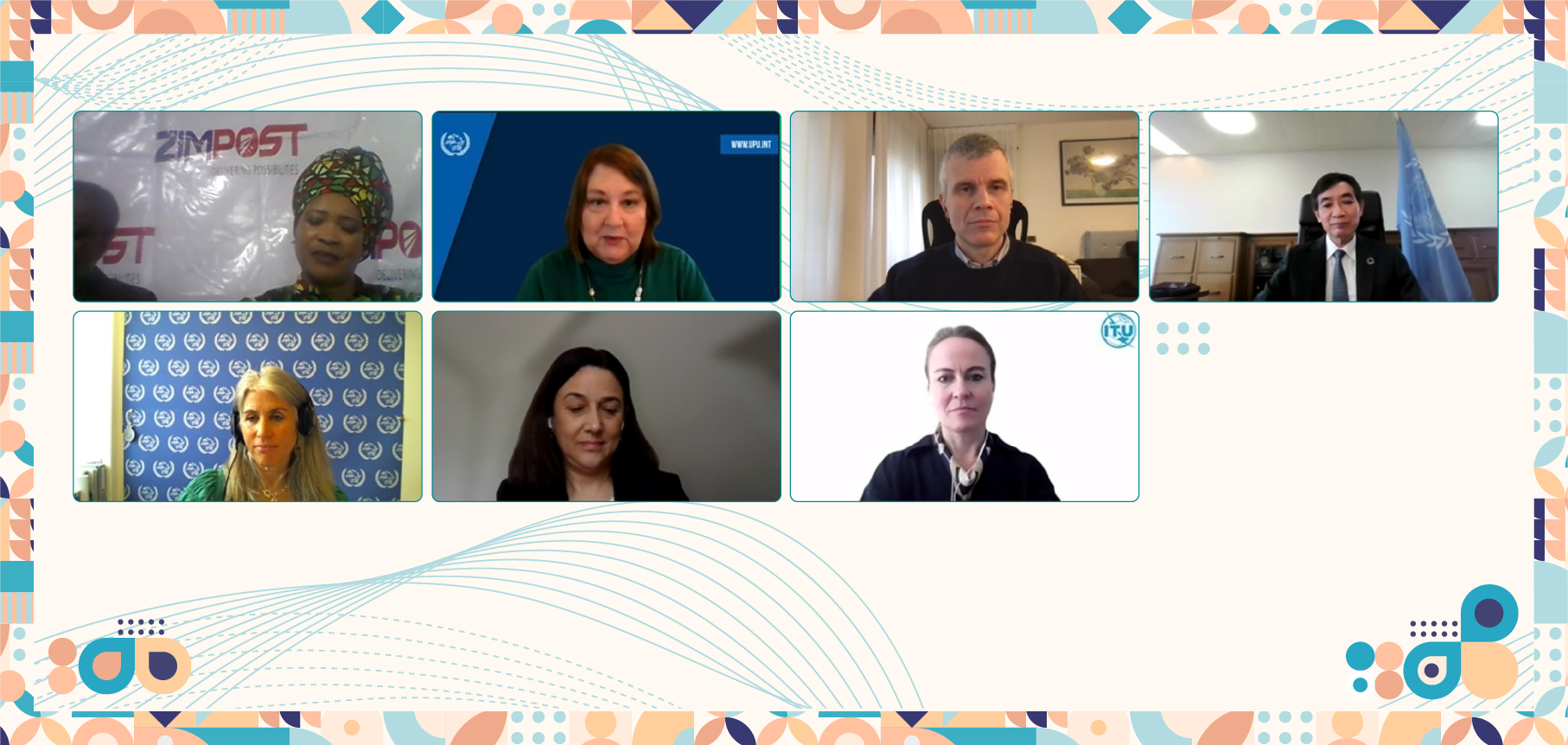The postal sector has a key role to play in accelerating gender equality alongside digital transformation, according to speakers in a UPU-led webinar held on the occasion of International Women’s Day under the theme: “Innovating equality: The Post as an engine of digital empowerment.”
The webinar, which saw contributions from women leaders at the International Telecommunication Union (ITU), La Poste France, the UPU and a fast-growing SME in Zimbabwe, explored how Posts can use gender equality to meet their digital transformation goals and how postal digital services can be used to promote gender equality and women’s empowerment society wide.“UPU research has shown us how Posts can foster the development of their communities by reaching the underserved with essential services,” said Masahiko Metoki, Director General of the UPU. “As a key social partner and a trusted public service provider, the Post can use its global reach to advance digital inclusion and close the digital gender gap.”
During the webinar, Rose Vambe, entrepreneur, fashion designer and founder and owner of Ashava Designs in Zimbabwe, highlighted how she benefited from digital inclusion services offered by ZimPost to grow her business. Vambe sells her goods on ZimPost’s Zimbabwe Mall online e-commerce platform, reaching customers across the world.
“ZimPost ran a programme dedicated to encouraging, engaging and empowering women in business, especially SMEs,” she said. As part of this, the post created facilities within its post offices where women can meet and learn about how they can become successful entrepreneurs. ZimPost provides training on the skills needed to open an online shop, including financing options, delivery products and the online platform itself.
“As African women we tend to avoid anything that talks about digitalization,” Vambe continued. “But ZimPost has worked hard to encourage all of us to overcome this. I have benefited greatly from being on their platform, and I would encourage other Posts to go to women at “grassroot-level” and empower them to enter the digital world.”
Christine Sund, Senior Advisor at the Regional Office for Africa at the ITU, meanwhile, highlighted how more gender sensitive policies at management and regulatory levels are needed to drive inclusive digital transformation. “It is also critical that governments involve women in consultative processes and ensure that policy making decisions prioritize their needs,” she said.
“One of the main challenges that we face is the lack of gender-informed policies,” she continued. “ITU research shows that by the end of 2022, only 94 countries had adopted national digital agendas and just a mere 21 of these had a special focus on women and girls. With regards to this, ITU has recently launched a handbook on gender mainstreaming and it really provides a practical tool for policymakers to make this happen.”
The UPU’s Wendy Eitan, Director of E-Commerce and Physical Service Integration, and Susan Alexander, Sustainability Services Programme Manager, also highlighted how post offices can be used to provide access to the Internet and to digital equipment, as well as the important role mentoring can play in helping women advance their careers.
“We in the postal world like to think of the Post as the great equalizer, which means providing access to all sectors of society and ensuring that no one gets left behind in the ever-expanding digital landscape,” said Eitan. “As a result of the UPU’s connect.post initiative, to connect every post office to the Internet by 2030, post offices could be used as centers where local communities can come to access the Internet and develop their business or to learn new skills, just like ZimPost has done in Zimbabwe.”
Vanessa Chocteau, Director of Transformation and Start-up Co-Innovation at La Poste France and Director General of Docaposte Institute, shared La Poste’s experience in supporting women-led digital tech start-ups in France through its French IoT programme. “We are looking for IoT (Internet of things) start-ups. We noticed that pure technology was a bit of a turn-off for women, so we realized over time that to achieve parity in project applications we had to talk about purpose. We asked women and girls if they had a digital service with a positive impact on society, and that was attractive to them.”
To achieve more applications from women to La Poste’s business accelerator programme, the company focuses on several areas for potential social impact, namely healthcare, public and other local services that provide convenience to citizens, and solutions that improve customer experience. “These themes speak to women much more, and this is how we get a lot more applications from them.”
Chocteau concluded: "We are still far from parity, but things are changing.”
Watch the full webinar recording through this link.
